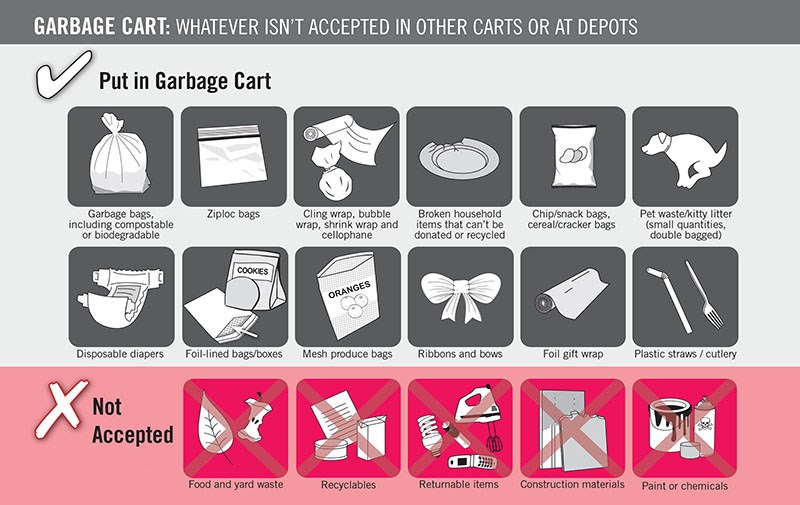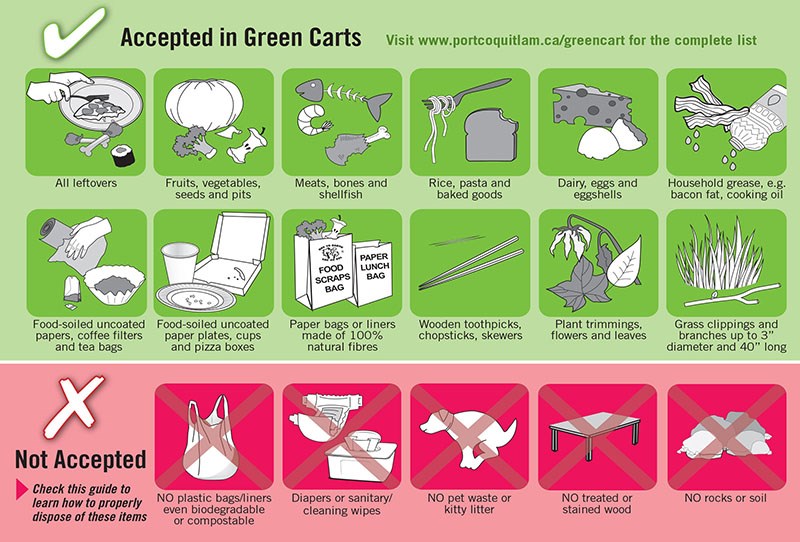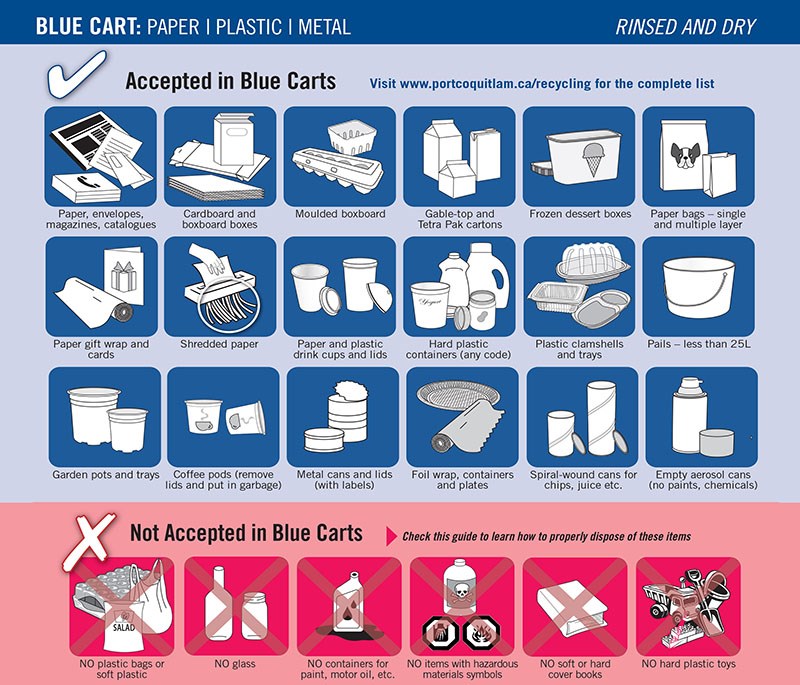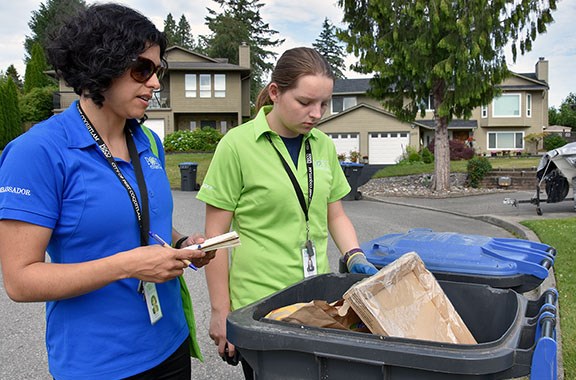It’s a hot, sticky summer morning and Port Coquitlam’s two ambassadors are ready for the stinky road that lies ahead.
On this day, they’ve targeted a short residential street in Zone 5, on the city’s south side, to peer into the homeowners’ blue and green bins before municipal workers pick them up.
Their audit of 13,217 single-family homes’ recycling and organics disposal started this past spring, shortly after a check of about 125 multi-family complexes that also get city collection.
In several apartments and townhomes, they found success stories, said program ambassador Mahdis Araujo, with some caretakers or facility volunteers rinsing out and separating the paper, hard plastics and metals from the garbage.
But, for the most part, they found that many residents just chucked their trash into the communal garbage container — unsorted. “No one knows who put it in there,” Araujo said, “so they feel like they can get away with it.”
The ambassadors have no tolerance when it comes to laziness.
Port Coquitlam, like many Metro Vancouver communities, are falling behind the region’s diversion target. In 2014, the agency set a recycling goal of 80% by 2020; however, according to its website, only 62% is being recycled, with two years left to go.
Araujo said Port Coquitlam’s number lies between 60% and 66% (versus 69% in Coquitlam). And, most troubling, the city could faces fines by Recycle BC — formerly Multi-Materials BC, or MMBC — if it doesn’t improve (PoCo is paid to do the service in-house while Recycle BC handles it for Coquitlam, at no cost).
In an effort to boost PoCo’s rate and avoid paying the penalties that would subsequently be downloaded onto taxpayers, city council in 2016 imposed higher fines for repeat offenders, at $300.
It also ramped up its education drive, with ambassadors tasked to tour neighbourhoods to look for violations.
The guidelines are confusing, the ambassadors admit, as each Metro Vancouver municipality has a different recycling set-up and accepts different items in their blue bins.
In PoCo, no glass, soft plastic or plastic bags, hard plastic toys, books and hazardous materials are allowed; they are to be put into the trash, upcycled, donated or disposed of at designated depots.
On their morning blitz with The Tri-City News, Araujo and Hannah Deppiesse, a PoCo resident, see plenty of “wish-cycling” as they dig through dozens of the recycling bins — armed with gloves, a notepad and camera.
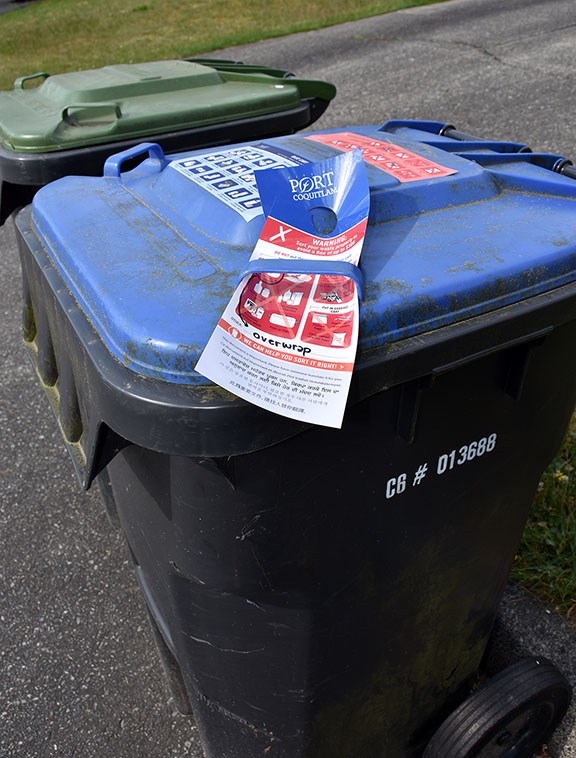
On the top layer of one of the first bins they pass by, they find a food tray: it and the lid can be recycled but the left-over fruit has to go into the green bin (of which the contents are deposited at Harvest Power in Richmond).
“You see?” Araujo said. “People have the best intentions sometimes but don’t get it quite right…. We are empathetic.”
In other recycling bin, she pulls an example of “nesting” — that is, residents shoving non-recyclable items into a cereal box, for example.
Araujo knocks on the owner’s door and, seeing no one home, leaves behind the city’s colourful flip guide called Sort it Right! that spells out what can and can’t go into a recycling bin.
Deppiesse places a sticker on the bin as well snaps a photo of the non-permitted objects and records the address; later that day, the pair will enter the information into a computer and issue a warning letter to the homeowner (a fine is imposed after the third violation notice and, so far this year, there have been none).
Further down the street, the ambassadors meet homeowners in person, who get the Sort it Right! literature as a result of Styrofoam — “the worst thing we can find,” Araujo said — and red foil gift wrapping bags in their recycle bins.
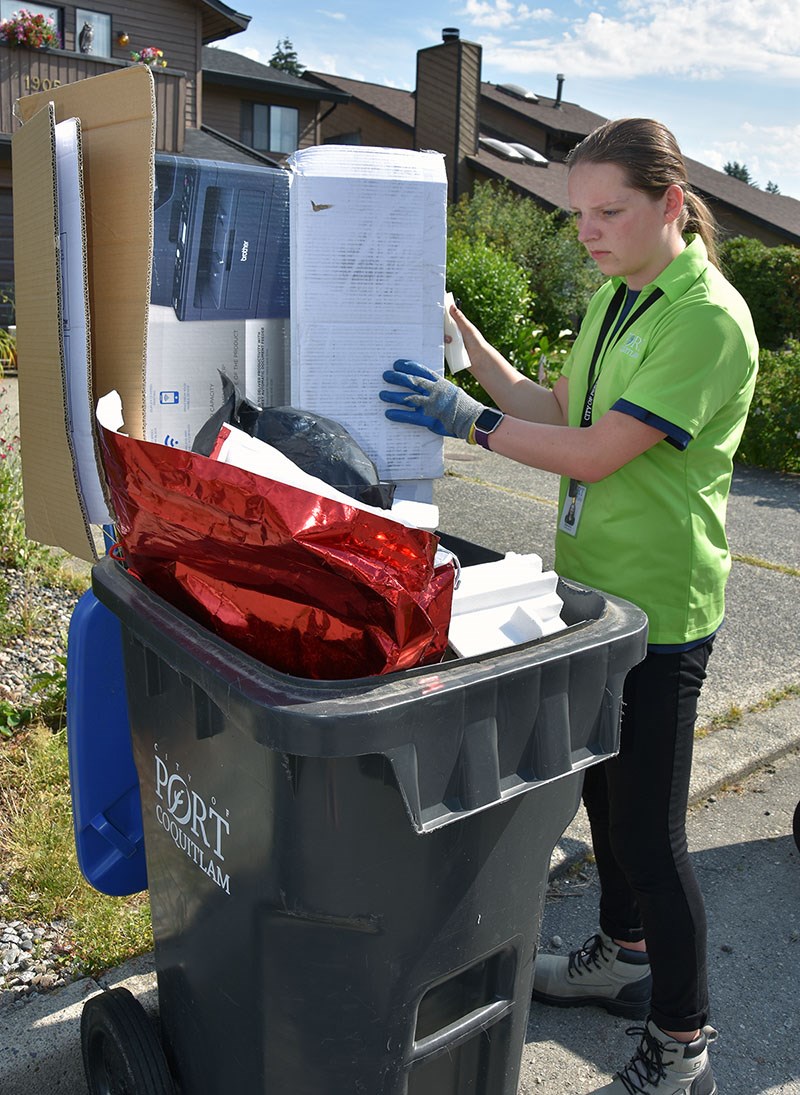
The residents want answers, Araujo said, and they want to comply.
Still, monitoring residents’ recycling actions will be an ongoing project for the city. “People may revert to their old habits so we have to stay on top of it,” she said.
Deppiesse said the ambassadors often pop into schools to make presentations about how and what to recycle; the message is then passed on to others in the household. “If you teach them at a young age, it will stay with them for the rest of their lives.”
Araujo hopes, one day, the city will find a way to reward homeowners whose bins are contaminate-free — perhaps with a public sticker on their carts. “That way they can be seen as a neighbourhood champion and boast about being a good example.”
She added, “Our challenge is to make [recycling] as easy to understand as possible. We want people to be thinking while they’re separating their garbage…. and we don’t want them to be relying on single-use containers or buying so much packaging. We can’t have overflowing landfills. This is something we have to do to protect our environment.”
• PoCo residents wanting to ask waste and recycling questions to the city ambassadors can visit portcoquitlam.ca/ambassadors or email [email protected].
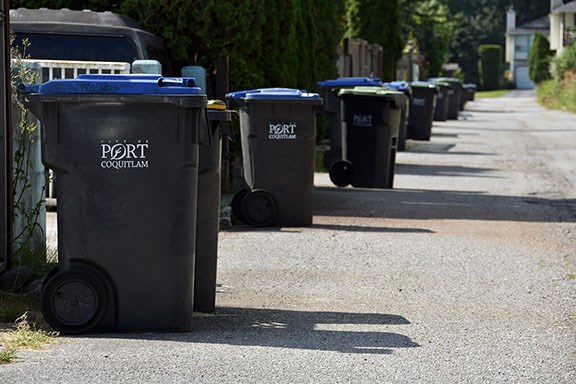
••••
RECYCLE HELP
Confused about sorting? You can ask for help:
• Coquitlam: 604-927-3500 (coquitlam.ca/recycle)
• Port Coquitlam: 604-927-5496 or 604-927-5488 (portcoquitlam.ca/sortitright)
• Port Moody: 604-469-4574 (portmoody.ca/recycle)
